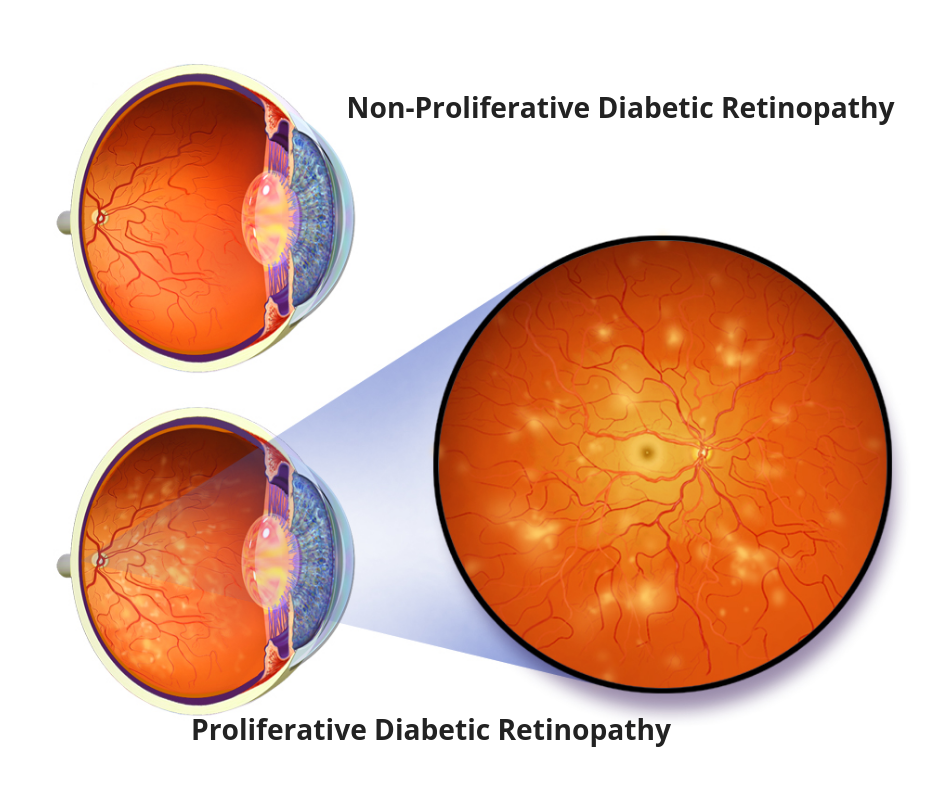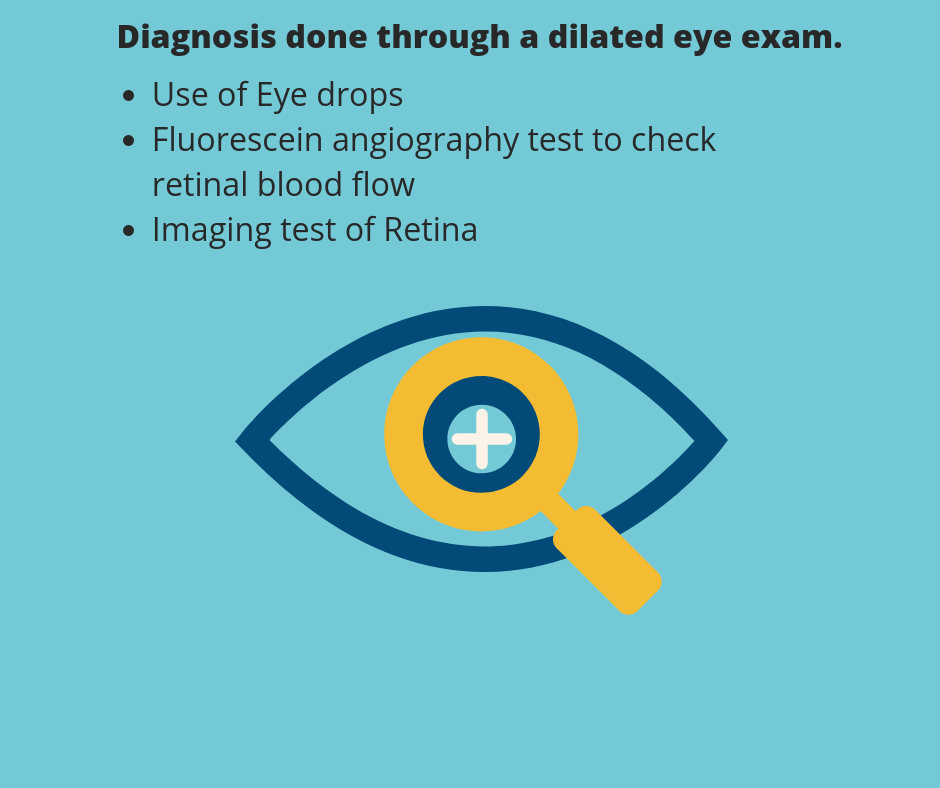Did You Know?
There are approximately 69.2 million people who are affected by Diabetes in India, of which half of them are undiagnosed. This affects not only the body’s blood sugar in the long term, but also has an adverse effect on various other organ systems. One of the most crippling ramifications of having diabetes is an eye condition called diabetic retinopathy.
What is Diabetic Retinopathy (DR)?
Diabetic retinopathy is a health condition that occurs in diabetic people as a result of damage to the retina’s blood vessels. Diabetic retinopathy can develop if a person has type 1 or 2 diabetes and a long history of uncontrolled high blood sugar levels. The extent of damage caused to the retina is related to control and duration of diabetes. While a diabetic may start out with only mild vision problems, they can eventually lose their sight.
What are the stages of Diabetic Retinopathy?
- Non-proliferative Diabetic Retinopathy (NDPR) – In this more common form, that i
 s also called ‘early diabetic retinopathy’, the retinal blood vessel walls become weak & swollen. Tiny bulges (microaneurysms) protrude from the vessel walls of the smaller vessels, sometimes leaking fluid and blood into the retina. Larger retinal vessels can begin to dilate as well. NDPR can become severe, due to the congestion of more blood vessels and the nerve fibres in the retina, it may begin to swell. Sometimes the central part of the retina (macula) begins to swell (macular oedema), a condition that requires treatment. If left unattended, NDPR can progress to Proliferative Diabetic Retinopathy.
s also called ‘early diabetic retinopathy’, the retinal blood vessel walls become weak & swollen. Tiny bulges (microaneurysms) protrude from the vessel walls of the smaller vessels, sometimes leaking fluid and blood into the retina. Larger retinal vessels can begin to dilate as well. NDPR can become severe, due to the congestion of more blood vessels and the nerve fibres in the retina, it may begin to swell. Sometimes the central part of the retina (macula) begins to swell (macular oedema), a condition that requires treatment. If left unattended, NDPR can progress to Proliferative Diabetic Retinopathy. - Proliferative Diabetic Retinopathy (PDR) – Proliferative Diabetic Retinopathy (PDR) – Diabetic retinopathy can progress to this more severe type, known as proliferative diabetic retinopathy where damaged blood vessels close off, causing new, abnormal blood vessels to grow in the retina, which is structurally weak, and may rupture causing an outflow of blood into the clear, jelly-like substance that fills the centre of the eye (vitreous).
Eventually, scar tissue stimulated by the growth of new blood vessels may cause the retina to detach from the back of the eye. If the new blood vessels interfere with the normal flow of fluid out of the eye, pressure may build up in the eyeball. This can damage the nerve that carries images from the eye to the brain (optic nerve), resulting in glaucoma.
What are the symptoms of Diabetic Retinopathy?
The symptoms of diabetic retinopathy often don’t appear until major damage occurs inside of the eye. Unseen damage can be prevented by keeping blood sugar levels under good control and getting regular eye exams to monitor eye health.
Symptoms can include:
• seeing floaters or dark spots
• objects appear bent or slanting (metamorphosis)
• blurred vision
• sudden loss of vision
• difficulty distinguishing colours
Diagnosis and treatment of DR:

A doctor can diagnose diabetic retinopathy by doing a dilated eye exam. This involves the use of eye drops that make the pupils open wide, allowing the doctor to get a good look at the inside of the eye. The doctor will check for:
• abnormal blood vessels
• swelling
• leaking of the blood vessels
• blocked blood vessels
• scarring
• changes to the lens
• damage to the nerve tissue
• retinal detachment
They may also perform a fluorescein angiography test. During this test, the doctor will inject a dye into your arm, allowing them to track how the blood flows in the eye. They’ll take pictures of the dye circulating inside of the eye to determine which vessels are blocked, leaking, or broken.
Diagnosis can also involve an optical coherence tomography (OCT) exam where an imaging test is done of the retina to determine its thickness.
As this stage is reversible with strict control of blood pressure, cholesterol and overall parameters, your doctor may want to perform regular eye exams to monitor your eye health in case treatment becomes necessary.
For advanced diabetic retinopathy, the treatment could involve laser, intravitreal injections or surgery depending on the type and severity of retinopathy.
Early diagnosis and periodic follow-ups are key to this condition. The Capstone Clinic has state-of-the-art facilities to diagnose and effectively combat diabetic retinopathy, and help patients lead regular lives despite the condition.
Please call us at (044)-40080300 to book an appointment with our General Medicine Specialist or Ophthalmologist.



